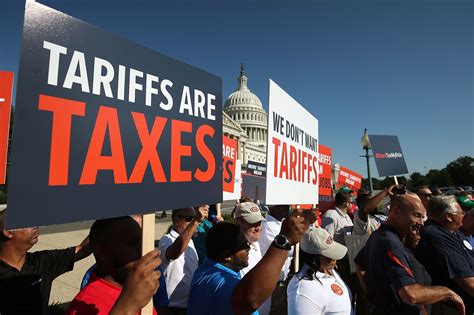President Trump’s recent implementation of 25 percent tariffs on imported vehicles has caused a significant stir in the auto industry. The effects are already being felt as carmakers react to the new trade regulations by adjusting their operations, impacting not just their bottom line but also the workers involved in the production process.
Industry Response
Some companies have swiftly responded to the tariffs by altering their manufacturing and export strategies. Jaguar Land Rover, a prominent British automaker, announced its decision to halt exports of luxury cars to the United States following the enforcement of the 25 percent tariff. This move underscores the immediate repercussions faced by international manufacturers due to increased import costs.
Stellantis, a major player with factories in Canada and Mexico producing Chrysler and Jeep vehicles, took a proactive approach in response to the tariffs. The company opted to idle its manufacturing plants in these countries and proceeded with laying off 900 workers from various U.S.-based facilities that supply parts for these vehicles. Such actions highlight how interconnected global supply chains are vulnerable to disruptions caused by sudden policy changes.
Global Ramifications
The impact of these tariffs extends beyond individual companies; it reverberates throughout the entire automotive sector. Audi, Volkswagen’s luxury division based in Europe, paused car exports bound for the United States instructing dealerships to sell existing inventory rather than replenishing stocks from overseas. If more automakers follow suit, there is a looming threat of higher vehicle prices and widespread job losses across different regions.
These initial reactions serve as a barometer for how businesses navigate uncertain trade landscapes shaped by governmental decisions such as tariffs. President Trump’s broader agenda includes levying industry-specific duties that could reshape market dynamics significantly—potentially leading companies to reevaluate their pricing strategies or relocate manufacturing operations domestically.
Consumer Impact
One critical aspect affected by these tariffs is consumer affordability. Applying additional charges on imported cars could inflate their prices substantially, dissuading potential buyers due to heightened financial burdens associated with purchasing foreign-made vehicles. For models like those from Jaguar Land Rover or Audi, consumers may face price hikes exceeding $20,000 per car—a deterrent that alters buying preferences dramatically.
Despite initial disruptions caused by these policy shifts, there have been instances where intended outcomes align with Mr. Trump’s objectives of boosting domestic production levels within the United States. General Motors’ recent announcement regarding increased light truck output at an Indiana facility reflects how some companies are adapting their strategies amid evolving trade conditions.
In conclusion…
Overall,…




Leave feedback about this